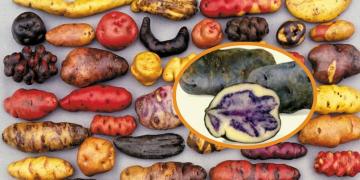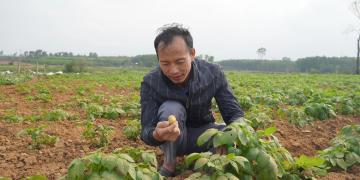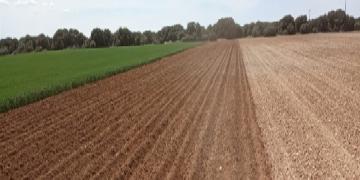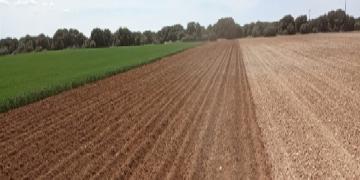Spain: Rain delays potato planting in Galicia
In areas such as Terra Chá you can see flooded fields with dry corn branches.

The rains recorded so far in March have had a very different impact on crops in different regions. While in some 44 provinces, especially Seville, Córdoba, and Murcia, the water has caused damage to some 10,000 hectares of crops ranging from lettuce to broccoli and cauliflower, according to Agroseguro data collected by Efe; in the east and south of the Peninsula, "they have provided significant relief from the drought" that has dragged on in recent times, according to COAG. In Galicia, where rain is not uncommon, its impact is lesser. What is happening is that in areas like Terra Chá and Mondoñedo, land preparation work for planting crops like potatoes or for the first grass cutting that dairy farms usually do in March is being delayed. "Now I’m not saying that it’s sex or bad, it’s just that spring seems to be a little late," explains Román Santalla, who after being in Unións Agrarias for three decades is now focused on his Agrosilva SC livestock farm, in the Deza region.
You only have to take a walk through the flatter areas of the community, such as Terra Chá, to see how accumulated water is blocking the passage of machinery in flooded fields where the dry stalks of corn can still be seen: "There are areas where they still couldn’t access the water to fertilize with chemicals, but the fact that it’s cold hasn’t reduced the grass as much as it should by this time. But there’s nothing to worry about right now," he adds. Typically, some livestock farms begin the first grass cuttings in March. The bulk of the work comes later, in April and May. But this year, everything is running between 15 and 20 days late.
Javier Miranda, from Hortícolas Javier Miranda, comments that "the fields are like soup", which is delaying entry to the farms to carry out tasks such as fertilizing or liming before planting crops such as potatoes: "We have to wait, it would be worse if this water and cold were to vine when everything was already thrown away."
The same cannot be said for other areas of the Iberian Peninsula, where open-air and even greenhouse gardening predominate. According to COAG, estimated losses in Murcia reach around 10 million euros, with some 5,000 hectares of lettuce, broccoli, and cauliflower devastated. This same agricultural organization also explained in a statement what is happening in communities such as Andalusia: "In Seville, dryland crops such as sunflowers and chickpeas have not yet been sown, and winter crops such as cereals are suffering from fungal diseases and root asphyxiation due to excess water. In the Lower Guadalquivir, many crops will be lost, or have already been lost, as is the case with peas, which are currently experiencing problems due to root diseases that cause root rot," they comment in the statement. There they also explain that "excessive rainfall is also affecting crops such as brassicas (cauliflower, broccoli, cabbage, turnip greens, etc.) that should be harvested already, but neither machinery nor workers can enter the fields without getting stuck."
Soft fruits are also suffering in Huelva, where excessive humidity is affecting strawberries. "Although the price has risen, it does not compensate for the losses," according to COAG. The province is also not immune to the wind, as it has caused damage to more than 200 hectares of greenhouses in this province.
In the province of Almería, the affected crops include broccoli, cucumber, peppers, watermelon, and melon, which are experiencing the impact of pests such as botrytis and downy mildew, leading to rotting symptoms. Although they are in full pollination, watermelon and melon are also suffering.
Fuente:




